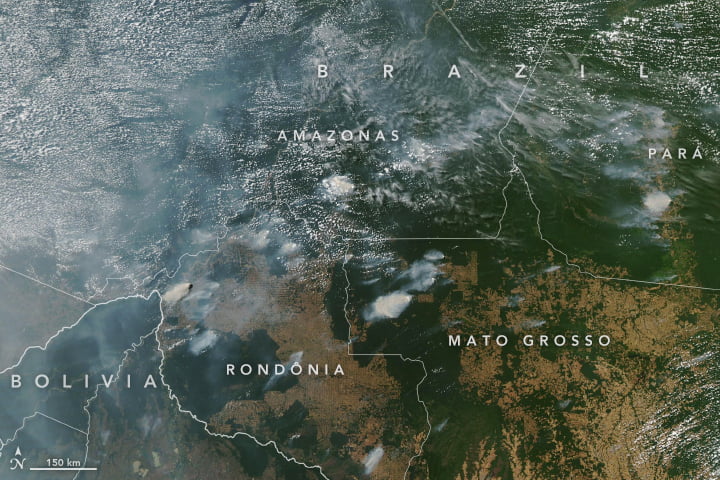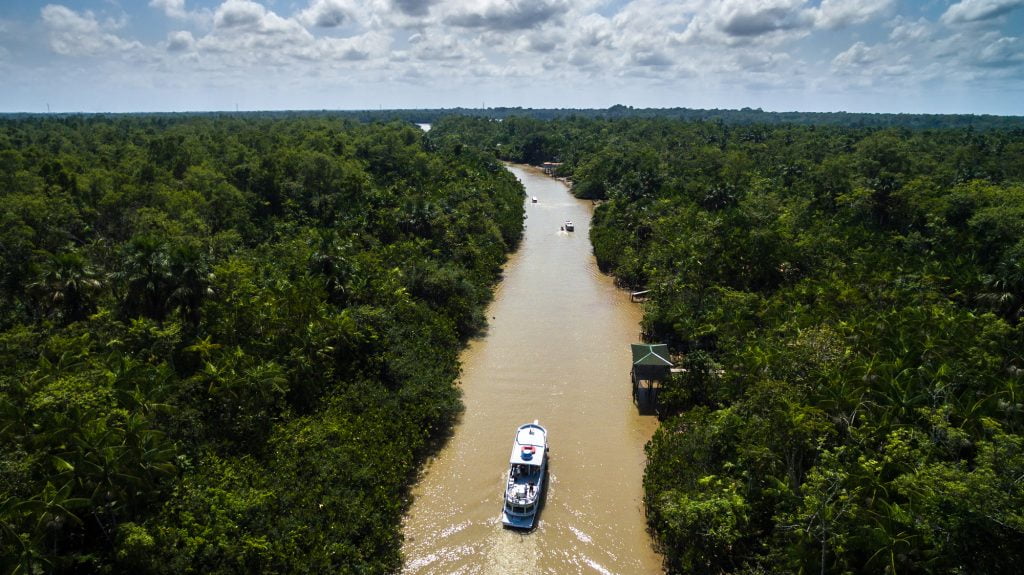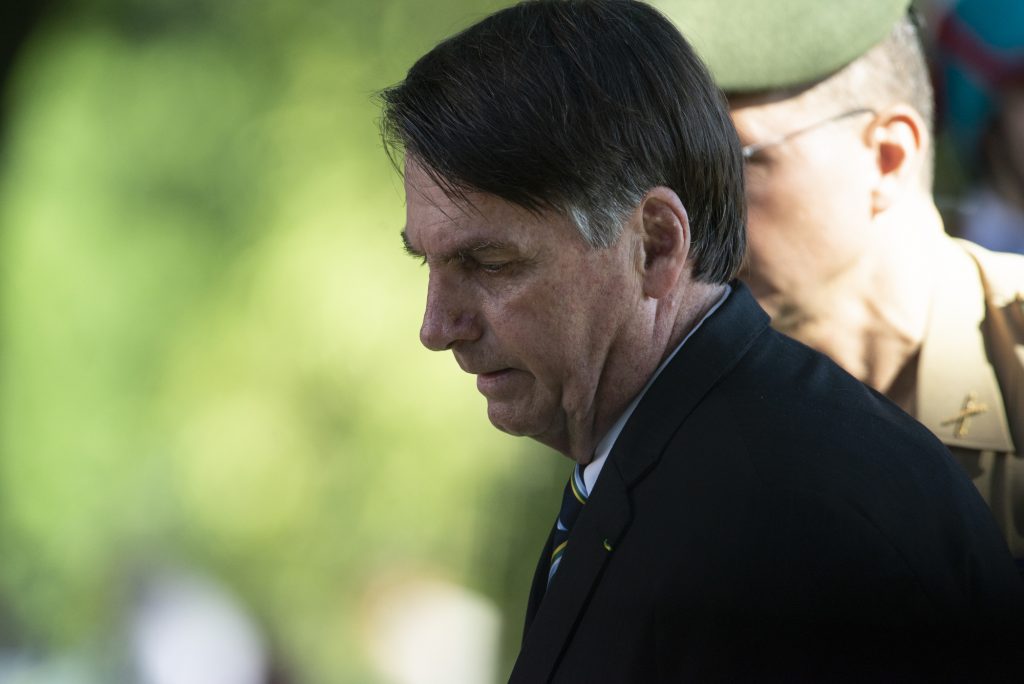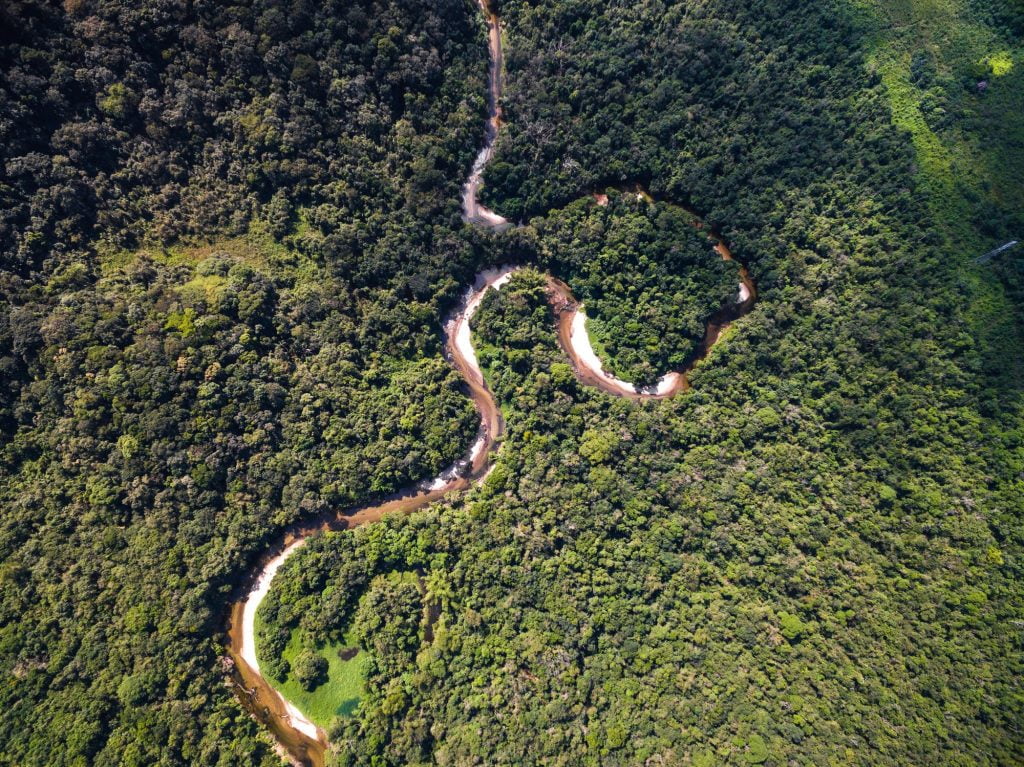Israeli startup VeganNation announced Friday that it leased some 15,000 acres (60.7 square kilometers or 23.4 square miles) in Brazil’s Amazon rainforest for a ten-year period to protect the land from deforestation and wildlife poaching. The Amazon basin covers about 2.7 million square miles, 2.1 million square miles of which is rainforest; and much of it is in Brazil.
VeganNation, which built a global e-commerce platform and social network for vegans worldwide powered by its own digital currency, said it would hand the land over to preservation groups and activist organizations to protect it.
“The Amazon rainforest might be located in Brazil, but its destruction affects us all, as climate change is a direct result of human activity and it’s in our hands to fight it,” said Isaac Thomas, VeganNation CEO and co-founder.
The startup also announced partnerships with four local soccer teams (Remo, Paysandu, National, and Iranduba) from cities near the entrance to the rainforest to raise environmental awareness. Thomas tells NoCamels that VeganNation is already a main sponsor of the teams – three men’s teams and one women’s team – and revealed that an additional four top-tier national teams are set to sign on to the initiative.
Thomas says the plan has been in the works for months. “We thought how can we take things to the next level, raise awareness about the environment, about veganism, and team up with local soccer teams to raise awareness with fans.”
VeganNation’ initiative comes amid the devastating fires that have continued to burn in the rainforest since early August, releasing dangerous air pollutants into the atmosphere, severely damaging flora and fauna ecosystems, and endangering indigenous communities that live under the forest canopy. The fires can be seen from space.

“When we measure the destruction of the rainforest, we talk about football (soccer) fields as a unit, so we thought what if we use that same measure to save parts of it,” Thomas says. To illustrate the point, the land leased by VeganNation covers over 5,500 soccer fields (if we’re using the measure of large regulation-sized soccer fields of approximately 2.69 acres per field).
“VeganNation understands that promoting veganism is an important step towards fighting the global warming crisis and raising awareness through local environmental projects among the Brazilian community is key. Partnering with four Brazilian soccer teams further enables us toward our mission of working together to create a better world,” he says.
Thomas tells NoCamels the initiative came about through a personal connection in Brazil: a family he knows in the city of Manaus owns land in the rainforest and used to lease it to a US gas company for carbon credits (where companies can trade for the right to emit greenhouse gases). As the lease was up, Thomas says he proposed to the family to lease the land to VeganNation.
“I said, ‘let’s renew the lease with VeganNation, that way it’s a win-win situation for everyone as we’re not polluting the environment,'” he explains.
Thomas says he’s not aware of any indigenous communities on the land and reiterates that the land will be overseen by local preservation groups that will work to educate and raise awareness about sustainability and saving the environment.

VeganNation recently raised $10 million in funding by private investors and added celebrity vegan activists Jerome Flynn, of Game of Thrones, and actor and dancer Jenna Dewan, to its advisory board.
Thomas says VeganNation’s work in the sports world is of key importance and the startup is set to bring in “one of the top three football (soccer) players in the world as an ambassador for sustainability.”
Brazil’s fires burn
The Amazon rainforest is the richest, most bio-diverse ecosystem in the world, home to thousands of tree species and millions of species of plants and animals including rare birds and pink dolphins.
It is considered vital to our planet and a crucial part of our “life-support system.”
Sign up for our free weekly newsletter
SubscribeSince early August, the Brazilian government, led by President Jair Bolsonaro, has been slow to act to bring the fires under control, initially dismissing them and then suggesting environmental activist groups may have started them to delegitimize the government. Bolsonaro, a right-wing leader, has moved to cut funds to agencies protecting the rainforest since his election last year and made campaign promises to explore the Amazon rainforest’s economic potential.
Environmental groups and researchers say the fires were started by humans at an unusual rate, likely cattle ranchers and loggers looking to clear the land. This year, forest fires in Brazil reached over 100,000, marking a 47 percent increase compared to last year, according to Brazil’s National Institute for Space Research.

The fires initially fit into a normal, established seasonal agricultural pattern that sees farmers leveraging the dry season to set fires that make way for fields, let cattle graze, and fertilize the soil.
But the rate has been noted as record-breaking. “Deforestation came down 75 percent from 2005 to 2014. Brazil was really going toward a zero-deforestation policy, and then it started reverting back in 2015, 2016, 2017, and then bigger [deforestation] increments in 2018. Now, 2019 seems to be a peak. It’s very likely to be more than a 30 percent deforestation increase from 2018 to 2019. And fires since January have more than doubled in the Brazilian Amazon, compared to the same period in 2018, so something is getting out of control,” said Carlos Nobre, Brazil’s leading expert on the Amazon and climate change, in an interview with Yale Environment 360
Nobre, a senior researcher at the University of Saõ Paulo’s Institute for Advanced Studies, warns of a “tipping point” now bearing down at which “a combination of deforestation and climate change would transform much of the Amazon into a savanna ecosystem, with dire effects on the world’s climate system.”
He and other researchers and environmental groups have pointed a finger at Bolsonaro, whom they feel has emboldened private interest groups with an anti-environmental agenda.
“The major concern is that increases in deforestation and fires were supported philosophically, politically, and ideologically by the president and by the minister of environment…According to Brazilian law, 80 percent of deforestation and nearly 100 percent of fires are illegal. But the people there, the environmental criminals, they felt free to do it — grabbing lands, razing lands for cattle ranchers — because they had the support of the president and many House members supporting that mode of development, Nobre said.

Late last month, under heavy international pressure, and amid several public spats with world leaders rejecting aid offers, Bolsonaro finally issued an order to send over 40,000 troops to help fight the fires.
SEE ALSO: Israel To Send Aid To Help Brazil Fight Amazon Fires
Brazil has also responded by calling for more development of the Amazon.
On Friday, the US and Brazil announced that they agreed to set up a $100 million biodiversity conservation fund for the Amazon led by the private sector.
“We want to be together in the endeavor to create development for the Amazon region which we are convinced is the only way to protect the forest,” said Brazil’s foreign minister, Ernesto Araujo, according to the BBC.
“So we need new initiatives, new productive initiatives, that create jobs, that create revenue for people in the Amazon and that’s where our partnership with the United States will be very important for us,” he added.
And earlier this month, seven South American nations – Bolivia, Brazil, Colombia, Ecuador, Guyana, Peru, and Suriname – signed a deal to set up a disaster response network and satellite monitoring, as well as work together on reforestation.
Related posts

Rehabilitation Nation: Israeli Innovation On Road To Healing

Israeli High-Tech Sector 'Still Good' Despite Year Of War





Facebook comments